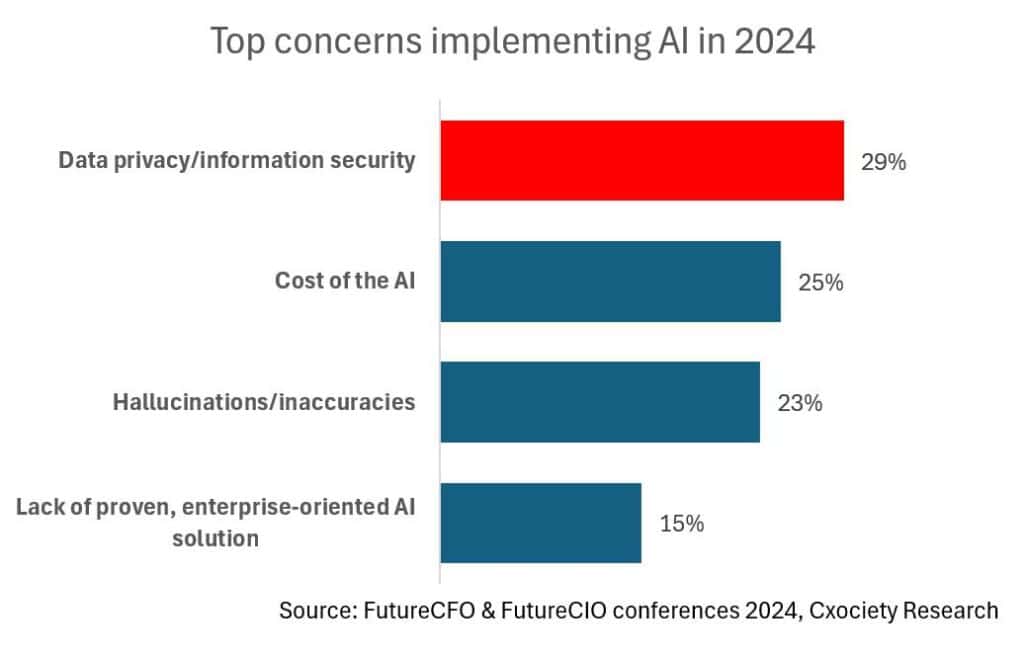PwC's 28th Annual Global CEO survey, culled from the thoughts of 4,701 chief executives, offers some interesting options for other leaders in business, operations, finance, technology, or security to respond to or even pave the way for their companies and industries in 2025.
Below are some of the key points drawn from the report.
Optimism and caution
As 2025 begins, a wave of optimism is sweeping across Asia Pacific. According to PwC's survey titled “28th CEO Global Annual CEO Survey - Asia Pacific: Reinvention in Motion,” 55% of CEOs in the region expect the global economy to improve over the next year, a marked increase from 40% in 2024.
Furthermore, 34% of CEOs express high confidence in their company’s short-term revenue growth, which rises to 54% for a three-year outlook. This growing confidence is underscored by a decline in the number of CEOs who believe their companies will not survive the next decade, from 63% in 2024 to 45% in 2025.

Mohamed Kande, global chairman of PwC, noted the juxtaposition in today's business landscape: while optimism prevails, the necessity for bold reinventions remains clear. Emerging technologies, such as generative artificial intelligence (GenAI), shifts in geopolitics, and the climate transition are fundamentally reshaping how businesses operate.
Generative AI – the promises and traps
Transformational potential
Generative AI (GenAI) is set to revolutionise business operations across Asia. Approximately one-third of CEOs report that this technology has already bolstered revenue and profitability in the past year. Looking to the future, half of those surveyed are optimistic about further profit increases from their investments in GenAI in the coming year. This optimism is echoed by employees, with 62% believing that generative AI will enhance their work efficiency.
However, trust remains a significant barrier to broad adoption. While many CEOs recognise the potential of GenAI, only about one-third plan to integrate it systematically into workforce development. This shortfall could impede the realisation of its full benefits, highlighting the importance of embedding AI into organisational strategies rather than treating it as a standalone tool..

As Andrew Ng, founder of DeepLearning.ai and an adjunct professor of Computer Science at Stanford University, put it: "Artificial intelligence is the new electricity." This sentiment is echoed by employees, with 62% expressing confidence that generative AI will enhance their work efficiency in the coming year, noted the PwC report.
Integration challenges
However, despite these promising early results, trust remains a significant barrier to the widespread adoption of generative AI. At the global level, many CEOs prioritise its integration into technology platforms and business processes, yet they are falling short in embedding it into workforce strategies.
The survey also reveals that only about one-third plan to systematically integrate AI into workforce development, potentially hindering the full realisation of generative AI's benefits.
Sustainability – still on the agenda
Financial gains from climate action
There was no shortage of natural calamities caused by severe weather disturbances and earthquakes in 2024. These remain recurring reminders to leaders worldwide that industries are reaping the results of decades of consuming the earth's resources without recognising the long-term abuse. These are a stark reminder of the urgent need for climate action.
In this context, the survey reveals a growing awareness among CEOs that investments in climate-friendly initiatives can yield substantial financial returns. One in three leaders reported heightened revenue from sustainability efforts implemented over the past five years.
Moreover, two-thirds noted that these investments either reduced costs or had no significant financial impact. This trend is more pronounced in regions like China, where 60% of CEOs observed revenue growth linked to climate-friendly practices.
Jack Ma once stated, "We are all about the environment; we are all about the future." As sustainability becomes a core component of business strategy, leaders may consider challenging their teams to innovate climate-friendly products and services.
Transitioning to a low-carbon economy is not merely a regulatory requirement but a strategic opportunity for value creation. Companies that effectively harness sustainable practices are poised to outperform their competitors in profitability and market positioning.
Economic outlook and strategic priorities
Optimism amidst uncertainty
Despite geopolitical tensions and inflationary pressures, nearly 60% of CEOs express optimism about global economic growth over the next year—a notable increase from previous surveys. This positive sentiment manifests in hiring intentions, with more than twice as many CEOs planning to increase headcount than those expecting reductions. Nevertheless, macroeconomic volatility remains a primary concern, as leaders identify it as a major threat to financial stability.
Sectoral blurring and competition
The survey indicates a blurring of sector boundaries, with nearly 40% of CEOs reporting competition from new sectors in recent years. This shift necessitates agile strategic planning and innovation readiness as traditional business models face disruption. Leaders must remain vigilant about evolving market dynamics and be ready to pivot their strategies accordingly.
Cybersecurity considerations
At the FutureCIO and FutureCFO conferences held across six markets in Asia in 2024, it was widely acknowledged that artificial intelligence is the new technology that needs to be adopted to capture the new opportunities. But as with previous innovations, concerns remain about the emerging technology (see figure below).

As businesses embrace digital transformation through technologies such as generative AI, cybersecurity threats loom more significant than ever. The survey reveals that cyber risks rank high among concerns for CEOs, who must ensure robust security measures form part of their technological frameworks. Rapid technological change demands continuous investment in cybersecurity infrastructure and employee training to mitigate potential vulnerabilities.
A call to action
For Asia's business, technology, and security leaders, 2025 presents a landscape rich with challenges and opportunities. Embracing generative AI while addressing trust issues will be crucial for driving operational efficiency and profitability. Simultaneously, prioritising sustainability aligns with global trends and positions companies for long-term success.
As leaders navigate this complex environment, adaptability and proactivity in their strategies will be paramount. They must integrate technology responsibly while fostering an organisational culture that embraces innovation and sustainability. The decisions made today will shape the future of individual organisations and influence the broader economic landscape across Asia.
Key takeaways for leaders:
Invest in generative AI: Focus on integrating AI into core business processes while addressing trust issues.
Embrace sustainability: Leverage climate-friendly investments as a means of driving revenue growth.
Monitor economic trends: Stay attuned to macroeconomic conditions and adjust strategies accordingly.
Prioritise cybersecurity: Ensure robust security measures are in place as digital transformation accelerates.
Hemione Hudson, chair and CEO of PwC China, observed that following years of digitisation, the traditional boundaries between industries have become increasingly blurred.
“We believe that the interaction between the development of AI, the challenges of climate change, and other megatrends will further accelerate this process of change,” she opined. “Industry convergence presents unprecedented opportunities for cross-sector growth in Asia Pacific, but navigating this complex environment will require decisive leadership and enhanced board engagement.”

As we look ahead, those who are willing to innovate and collaborate across traditional boundaries will lead the future and play a central role in shaping a more sustainable and interconnected world." Hemione Hudson



